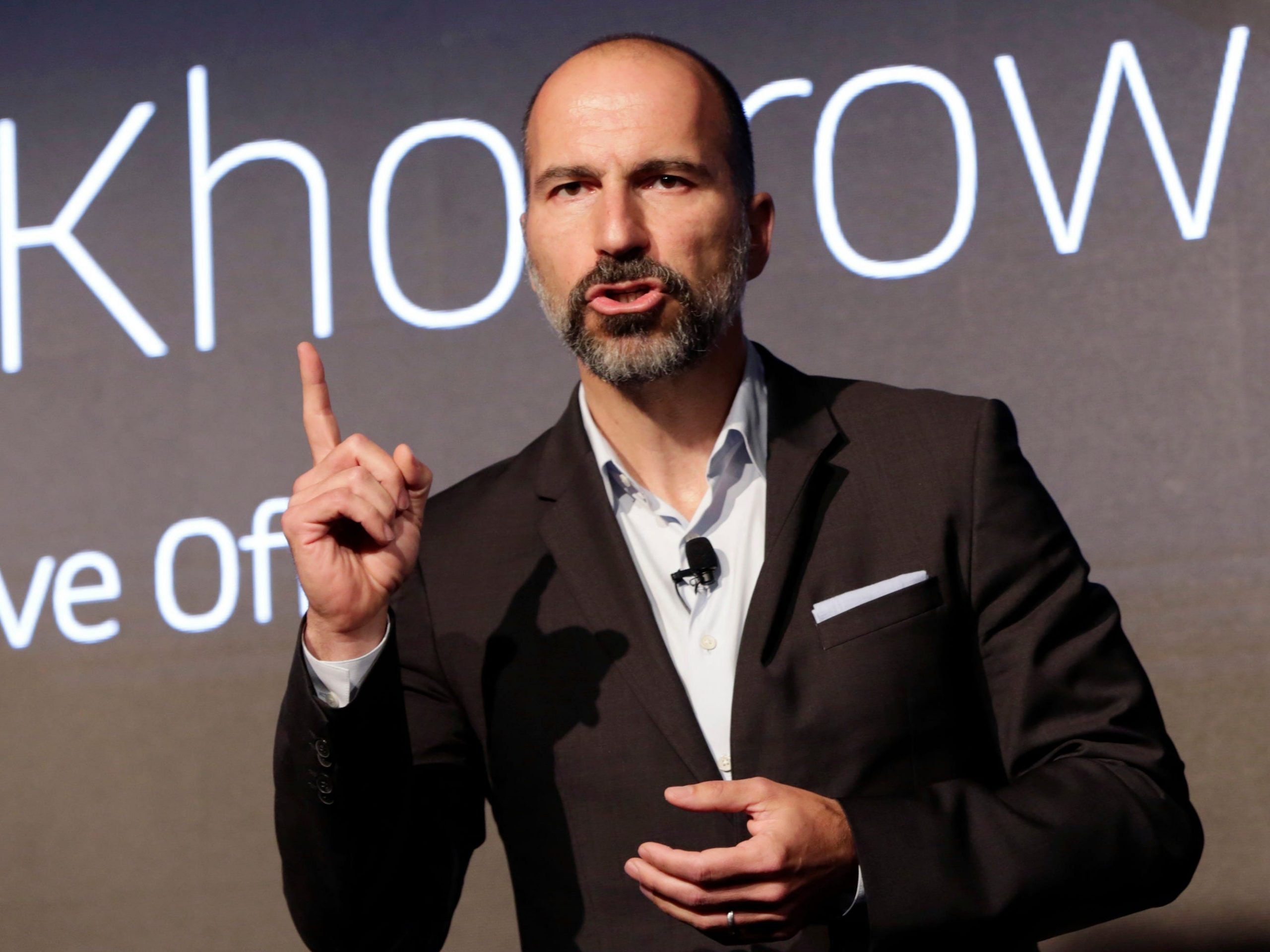- Uber is committing to becoming an “anti-racist company,” including investing $10 million in helping Black-owned small businesses.
- In a blog post published Friday, Uber CEO Dara Khosrowshahi said the company “must do more” to combat racial inequality, both within its ranks and in the communities it serves.
- Uber says it will expand anti-racism trainings for drivers as well as riders, create customer support positions that specialize in bias and discrimination issues, and hire more Black managers and technical workers.
- Uber is also waiving the delivery fee for Black-owned restaurants for the rest of 2020.
- Visit Business Insider’s homepage for more stories.
Uber CEO Dara Khosrowshahi says the company is working to become anti-racist, and it’s committing $10 million to helping Black-owned small businesses in the process.
In a lengthy blog post published Friday, Khosrowshahi laid out the changes Uber is making to combat racial inequality in society and within its ranks, including tying executive compensation to diversity targets and working to achieve pay equity. But, Khosrowshahi wrote, the company “must do more.”
“You’re probably thinking that Uber is not exactly the company you’d expect to be speaking up on this front,” he wrote. “But after a lot of reflection and change over the last few years, we continue to challenge ourselves to be a different and better company.”
The company said it plans to expand anti-racism trainings for drivers as well as riders and will create customer support positions that specialize in bias and discrimination issues. Uber also plans to hire more Black technical workers and more Black employees in leadership roles.
Additionally, Uber is pledging to invest $10 million over two years to help Black-owned small businesses, offering promotions and "other merchant support." Uber is also waiving the delivery fee for Black-owned restaurants for the rest of the year.
"I'm optimistic these actions will go a long way towards ensuring that everyone who works at or with Uber will be treated equally and feel like they belong," Khosrowshahi wrote. "But today is just one day: it is more important that we follow through, even after it feels like the outrage has cooled and business as usual has returned."
Uber and other ride-sharing platforms have been scrutinized in the past for racial discrimination among drivers, as well as pricing models that unfairly target non-white neighborhoods. A 2016 study by Stanford, MIT, and University of Washington economists found "significant evidence of racial discrimination" on ride-hailing apps. The study showed that black riders experienced longer wait times and were canceled on more often than white riders, according to The Atlantic.
A George Washington University study from June found that there was significant social bias in algorithms used by companies like Uber, with fares increasing for drop-offs in poorer and non-white neighborhoods.
Uber has reportedly faced issues of racial discrimination within its own ranks in the past. In 2018, Liane Hornsey, Uber's chief people office, resigned following an investigation into how she handled complaints of racial discrimination within the company, according to Reuters.

